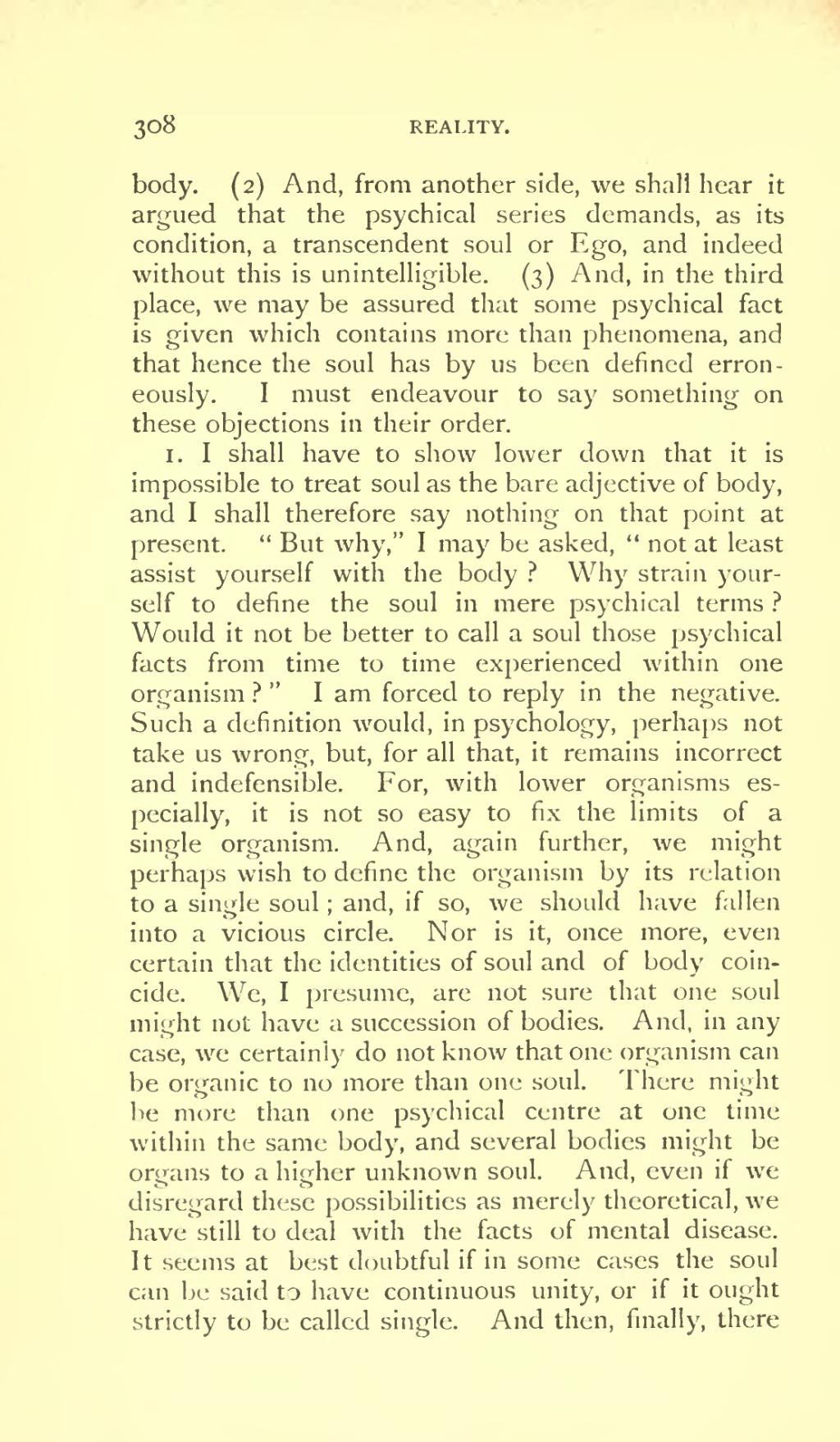body. (2) And, from another side, we shall hear it argued that the psychical series demands, as its condition, a transcendent soul or Ego, and indeed without this is unintelligible. (3) And, in the third place, we may be assured that some psychical fact is given which contains more than phenomena, and that hence the soul has by us been defined erroneously. I must endeavour to say something on these objections in their order.
1. I shall have to show lower down that it is impossible to treat soul as the bare adjective of body, and I shall therefore say nothing on that point at present. “But why,” I may be asked, “not at least assist yourself with the body? Why strain yourself to define the soul in mere psychical terms? Would it not be better to call a soul those psychical facts from time to time experienced within one organism?” I am forced to reply in the negative. Such a definition would, in psychology, perhaps not take us wrong, but, for all that, it remains incorrect and indefensible. For, with lower organisms especially, it is not so easy to fix the limits of a single organism. And, again further, we might perhaps wish to define the organism by its relation to a single soul; and, if so, we should have fallen into a vicious circle. Nor is it, once more, even certain that the identities of soul and of body coincide. We, I presume, are not sure that one soul might not have a succession of bodies. And, in any case, we certainly do not know that one organism can be organic to no more than one soul. There might be more than one psychical centre at one time within the same body, and several bodies might be organs to a higher unknown soul. And, even if we disregard these possibilities as merely theoretical, we have still to deal with the facts of mental disease. It seems at best doubtful if in some cases the soul can be said to have continuous unity, or if it ought strictly to be called single. And then, finally, there
